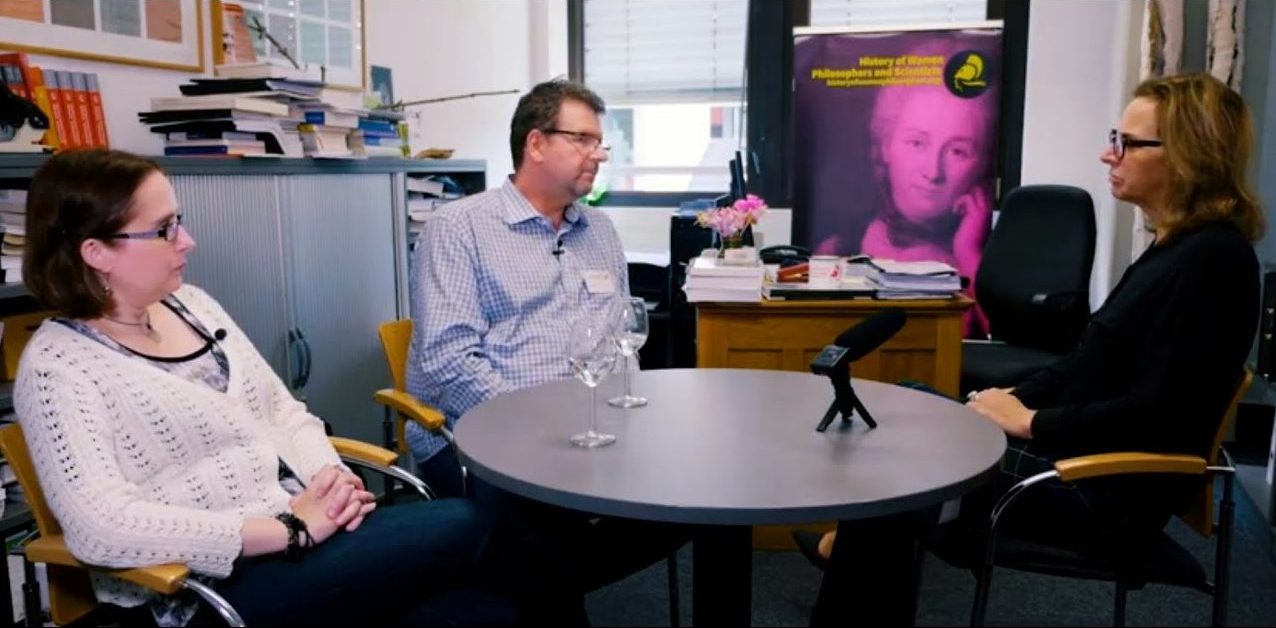 We want to present you the next article of the second volume of the Journal for the History of Women Philosophers and Scientists. The second part of volume 2 is the first themed issue of the Journal of the History of Women Philosophers and Scientists: it is dedicated to women philosophers of Southeastern Europe. This issue is a result of a many-years-long collaboration between the Centre for the History of Women Philosophers and Scientists at the University of Paderborn, led by its director and the main editor of this journal, Ruth Edith Hagengruber, and the Research Center for Women in Philosophy, founded by the guest editors of this volume, Luka Boršić and Ivana Skuhala Karasman, at the Institute of Philosophy in Zagreb, Croatia, in 2019.
We want to present you the next article of the second volume of the Journal for the History of Women Philosophers and Scientists. The second part of volume 2 is the first themed issue of the Journal of the History of Women Philosophers and Scientists: it is dedicated to women philosophers of Southeastern Europe. This issue is a result of a many-years-long collaboration between the Centre for the History of Women Philosophers and Scientists at the University of Paderborn, led by its director and the main editor of this journal, Ruth Edith Hagengruber, and the Research Center for Women in Philosophy, founded by the guest editors of this volume, Luka Boršić and Ivana Skuhala Karasman, at the Institute of Philosophy in Zagreb, Croatia, in 2019.
A recent collaboration with Luka Boršić and Ivana Skuhala Karasman is the Croatia Libori Summer School. After hosting the conference several years in Paderborn, we wanted to take the conference internationally. Our first stop was Zadar, Croatia in 2022. The following year the conference was hosted in Zagreb.
 Luka Boršić and Ivana Skuhala Karasman were constantly sharing their knowledge with us. Resulting in a lecture on Women in Capitalism by Luka Boršić at the 2018 Libori Summer School, a Conversation with Diotima on Helene Druskovitz as well as the talk South-East European Women Philosophers from the 20th century until now – an overview by Ivana Skuhala Karasman and Luka Boršić at the 2021 IAPh.
Luka Boršić and Ivana Skuhala Karasman were constantly sharing their knowledge with us. Resulting in a lecture on Women in Capitalism by Luka Boršić at the 2018 Libori Summer School, a Conversation with Diotima on Helene Druskovitz as well as the talk South-East European Women Philosophers from the 20th century until now – an overview by Ivana Skuhala Karasman and Luka Boršić at the 2021 IAPh.
Read here the article:
The Tide Is Turning: More and More Philosophizing Women in Bulgaria by Dimka Ivanova Gicheva-Gocheva
Abstract: The article uses the method of the historical narrative. The main characteristics and stages in the development of the University of Sofia are sketched. The article focuses on this university because it is the oldest and until recently the biggest in the country, and the participation and inclusion of female scholars is best seen here. Abundant information is provided on the number of women studying and teaching in this university since its establishment and, in the last three decades, elsewhere. The tendencies are positive: more women intellectuals are participating in academic and cultural life, and they are employed and supported at many more institutions than during the previous century.
You cannot copy content of this page








